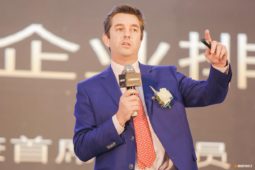
Most rich in China are self-made, first in agriculture, then real estate, and the past five years in new energy, says Hurun chairman Rupert Hoogewerf at the release of the 2021 Hurun China rich list. Compared to Hong Kong and Taiwan, mainland rich seldom inherited their wealth, he added.
Rupert Hoogewerf:
“A boom in new energy entrepreneurs, sparked by carbon reduction targets, as well as a spate of new listings of tech-related companies drove this year’s Hurun China Rich List to records heights, adding more than 20%, both in terms of number of individuals and also total wealth. Another factor was adding in entrepreneurs from HK, Macao and Taiwan for the first time, however, with only 200, this was not a significant factor.”
“100 times in 20 years. Twenty years ago, we could only find 19 individuals with US$300mn, but over the last 20 years, this has grown over 100x to almost 3,000, showing the growth of the Chinese economy. Based on this trajectory, expect the Hurun China Rich List to grow to as many as 5,000 within ten years. At the billionaire level, it is a similar story: Back in 1999, there were none, with the first wave of 100 coming through in 2007, before breaking through the 500-mark in 2015 and since Covid, almost doubling to 1185 known billionaires today, 50% more than the US, which has just under 700 known billionaires. At this rate, expect China to have 2,000 known billionaires by 2030.”
“Half of this year’s list are new faces compared with five years ago, showing the dynamism of China’s private sector. New sectors and business models are changing the landscape of the list. 20 years ago the top 10 was led by agriculture, then 10 years ago it was real estate. Five years ago it was the second wave of internet platforms, whilst today it is new energy.”
“Zhang Yiming of ByteDance at 38 becomes only the fifth person since our first rich list in 1999 to make the Top 3 whilst still in his thirties, the others being Ding Lei of Netease, Chen Tianqiao of Shanda, Huang Guangyu of Gome and Yang Bing of Euro Asia. Keep watching. Zhang Yiming is a likely candidate to become the next Number One in China, especially if he gets to list ByteDance.”
“From the Hurun China Rich List, we can see which industries and business models are on the up and which are on the way down. New energy has had an amazing year, whilst real estate, home tutoring services, pork production and video gaming have had a bad year. Embattled Xu Jiayin of Evergrande was down US$25bn to leave him with just over US$10bn. In home tutoring, Tom Zhang Bangxin of TAL Education lost US$14bn to leave him with less than a billion, whilst Chen Xiangdong of Genshuixue lost US$12.5bn, dropping him off the list. Pork producers Liu Yonghao and Qin Yinglin were down US$8bn and US$5bn. Video gaming leader Pony Ma of Tencent was down US$10bn.”
“The average ‘Hurun Rich Lister’ was born in 1965, started his business in 1994 at the age of 29, broke into the list in 2012 at the age of 47, and is now 56 years old with US$1.9bn.”
“Succession is a hot topic in China. US$1.5tn of wealth is likely to pass down from the first generation entrepreneurs on the list to the nextgen over the next 20 years. The Lee Kum Kee family is the only 100-yr old family dynasty on the list.”
Only 4% or 122 individuals inherited their wealth. 60% are from Taiwan and Hong Kong, with 41 from Taiwan and 28 from Hong Kong, followed by 9 from Guangdong, 8 from Zhejiang and 7 from Shanghai. “96% of the Hurun China Rich List is first generation self-made wealth,” Hoogewerf said.
Rupert Hoogewerf is a speaker at the China Speakers Bureau. Do you need him at your (online) meeting or conference? Do get in touch or fill in our speakers’ request form.
Are you looking for more stories by Rupert Hoogewerf? Do check out this list.






